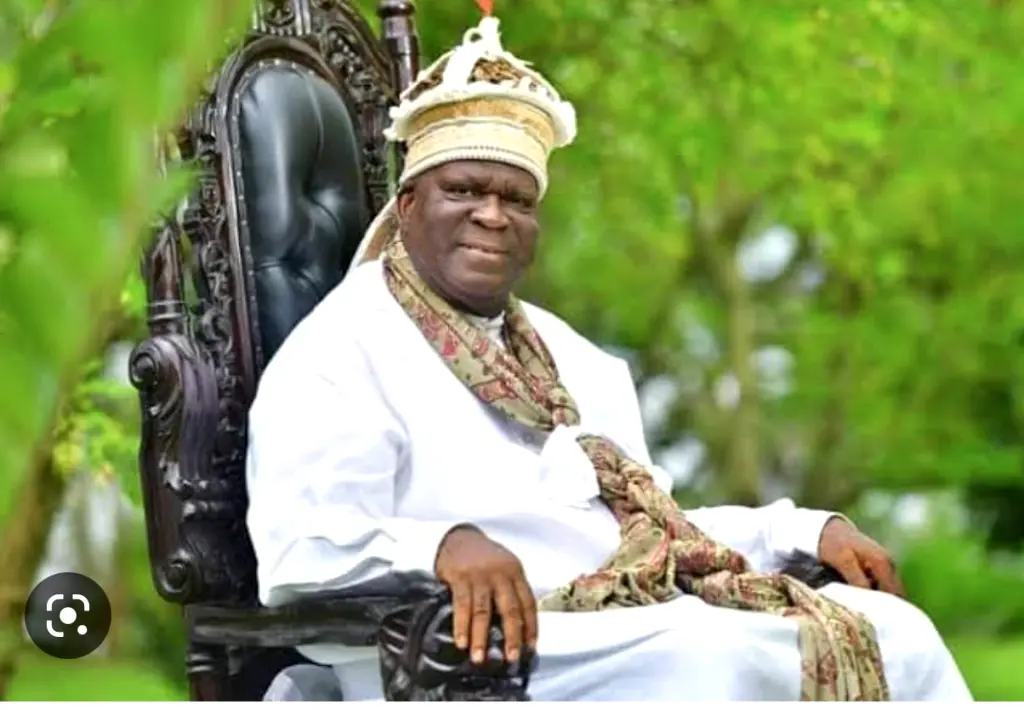After six days of dethronement by Supreme Court, Edidem Ekpo Abasi-Otu V, the Obong of Calabar, has returned to the revered Efik throne.
The Etubom’s Conclave of the Obong of Calabar Palace re-proclaimed him on Wednesday, January 18.
This was in compliance with the Supreme Court Judgement of January 13, which ordered the Etubom’s Conclave of the Obong of Calabar’s Palace to conduct a fresh selection process for the throne of the Obong of Calabar.
Also read: Breaking: Supreme Court ‘Sacks’ Obong of Calabar
Chairman, of Etubom’s Conclave, Etubom Ntiero Effiwat, stated this while reading a document signed by 13 of the conclave members before the others at the palace of the Obong of Calabar on Wednesday.
According to Effiwat, the Abasi-Otu of Adiabo Ikot Mbo Otu House, having fully satisfied with the candidate’s qualifications and eligibility, the Etubom’s Conclave, therefore, declared him the successor.
“He is hereby on this day, Jan. 18, 2023, been proclaimed as successor to the throne of the Obong of Calabar.
“The qualified Etuboms who fall under this group were communicated to and directed to produce and present their nominee to the Etubom’s Conclave by January 18, 2023.
“The most senior Etubom of Atai Iboku group, Etubom Otu Efa-Otu, presented their selected nominee for the throne of Obong of Calabar in the person of HRH, Ekpo Abasi-Otu of Adiabo Ikot Mbo Otu House,” he said.
Supreme Court dethroned Obong of Calabar
Supreme Court of Nigeria had released its 42-page judgment of January 13, confirming that the Obong of Calabar, Edidem Ekpo Okon Abasi Otu V, remained sacked as the Obong.
The judgment, which was signed by Justice Amina Adamu Augie, and made available to newsmen in Calabar, yesterday, also confirmed that the appellant, Etubom Anthony Ani, stands a chance to contest in a fresh election but may be hindered by the fact that he was not duly capped and recognised by the Obong in Council.
She, however, confirmed that the deposed Obong, though ran foul of the selection process, could still contest in a fresh process in accordance with the law of the traditional institution of the palace.
Since the judgment, there have been claims in a section of the media (not The Guardian) that the Supreme Court reaffirmed Otu as Obong but to put the records straight, the Supreme Court, in its judgment, rejected such claims, saying the Obong remained removed.
The judgment reads: “The Court of Appeal may have found that first respondent (Abasi Otu) qualified to contest for the stool. It, however, held that from the only evidence available to the High Court, the only impression a reasonable man would have of the process is that appellants of the second set of appeal (Etubom Traditional Council) used their positions in Western Council unfairly to the disadvantage of first respondent (Ani) in breach of the pillar of natural justice that a person should not be a judge in his own cause.
“Since the evidence of the second appellant (Etubom Okon Asuquo of the Etubom Traditional council) was that the first screening of first respondent (Ani) was cancelled, and he was not notified of the cancellation and afforded the opportunity to be screened again when another screening exercise was conducted by second appellant on another date for other candidates, first respondent was undoubtedly denied the right to be heard in the selection process that led to proclamation of first appellant as the Obong.”
It ruled that the trial court and Court of Appeal were ad idem that the way and manner the first respondent (Abasi Otu) was selected and proclaimed the Obong of Calabar was not in accordance with the principles of natural justice.

